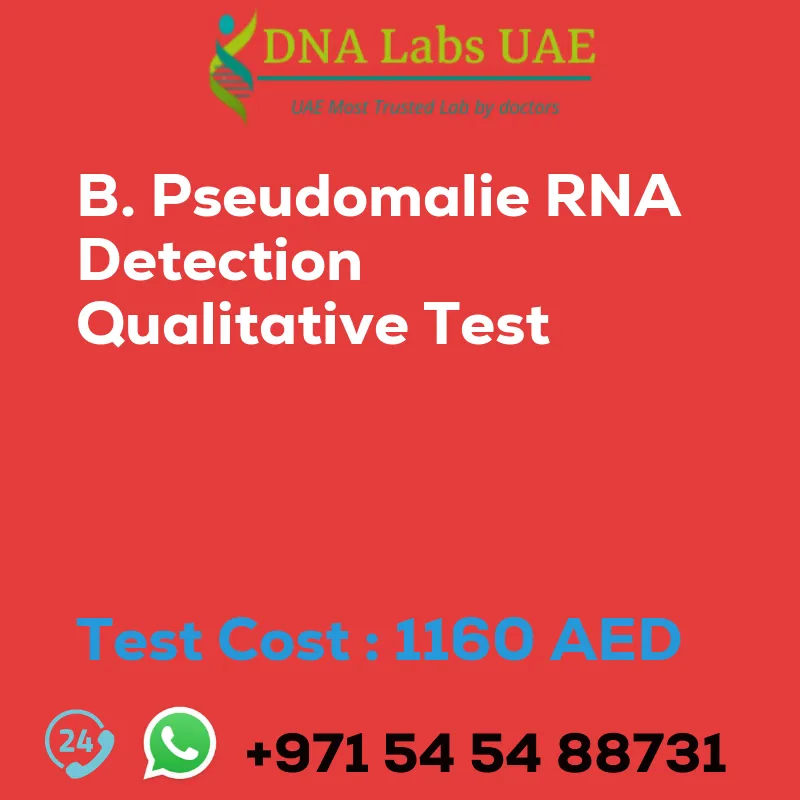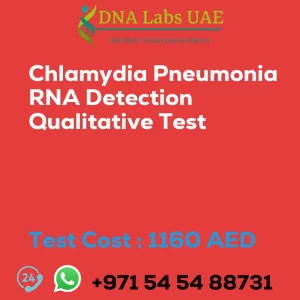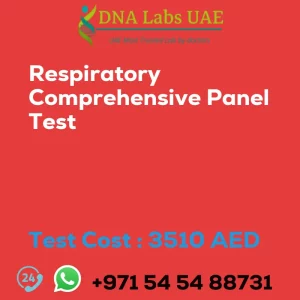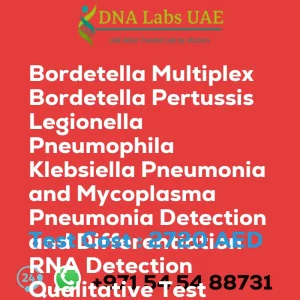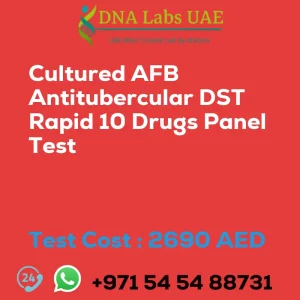B. Pseudomalie RNA Detection Qualitative Test
Cost: AED 1160.0
Symptoms and Diagnosis
The B. Pseudomalie RNA Detection Qualitative Test is a diagnostic tool used to detect the presence of pseudomalie RNA in a sample. Pseudomalie is a type of bacteria that can cause infections in humans, especially in individuals with compromised immune systems. The test is performed by collecting a sample, such as blood or tissue, from the patient suspected of having a pseudomalie infection.
Test Details
The collected sample is then processed in a laboratory to extract the RNA present in the bacteria. This RNA is then subjected to a series of amplification and detection steps to determine if the pseudomalie RNA is present. The test provides a qualitative result, meaning it can determine if the pseudomalie RNA is present or not.
A positive result indicates the presence of the bacteria in the patient’s sample, suggesting an active infection. On the other hand, a negative result suggests the absence of pseudomalie RNA, indicating that the patient is not infected with the bacteria.
Test Components
- Price: AED 1160.0
- Sample Condition: Serum, plasma, whole blood
- Report Delivery: 3rd Working Day (Email: 36 hours, On phone: 24 hours)
- Method: Real Time PCR
- Test Type: Viral
- Doctor: Physician
- Test Department: Genetics
Pre Test Information
Prior to the B. Pseudomalie RNA Detection Qualitative Test, patients are required to sign a consent document and bring any clinical history related to the suspected pseudomalie infection.
Importance of the Test
The B. Pseudomalie RNA Detection Qualitative Test is an essential tool for diagnosing pseudomalie infections. Early detection and treatment of pseudomalie infections can help prevent the spread of the bacteria and improve patient outcomes.
| Test Name | B. Pseudomalie RNA Detection Qualitative Test |
|---|---|
| Components | |
| Price | 1160.0 AED |
| Sample Condition | Serum, plasma, whole blood |
| Report Delivery | 3rd Working Day Email:-36 hours. On phone: 24 hours |
| Method | Real Time PCR |
| Test type | Viral |
| Doctor | Physician |
| Test Department: | Genetics |
| Pre Test Information | Need to sign Consent document and bring any clinical history of patient forB.Pseudomalie (RNA Detection) QualitativeTest |
| Test Details | The pseudomalie qualitative test is a diagnostic tool used to detect the presence of pseudomalie RNA in a sample. Pseudomalie is a type of bacteria that can cause infections in humans, particularly in individuals with compromised immune systems. The test is performed by collecting a sample, such as blood or tissue, from the patient suspected of having a pseudomalie infection. The sample is then processed in a laboratory to extract the RNA present in the bacteria. This RNA is then subjected to a series of amplification and detection steps to determine if the pseudomalie RNA is present. The test provides a qualitative result, meaning it can determine if the pseudomalie RNA is present or not. A positive result indicates the presence of the bacteria in the patient’s sample, suggesting an active infection. On the other hand, a negative result suggests the absence of pseudomalie RNA, indicating the patient is not infected with the bacteria. The pseudomalie qualitative test is an important tool for diagnosing pseudomalie infections, as it allows healthcare providers to quickly identify and treat affected individuals. Early detection and treatment of pseudomalie infections can help prevent the spread of the bacteria and improve patient outcomes. |

